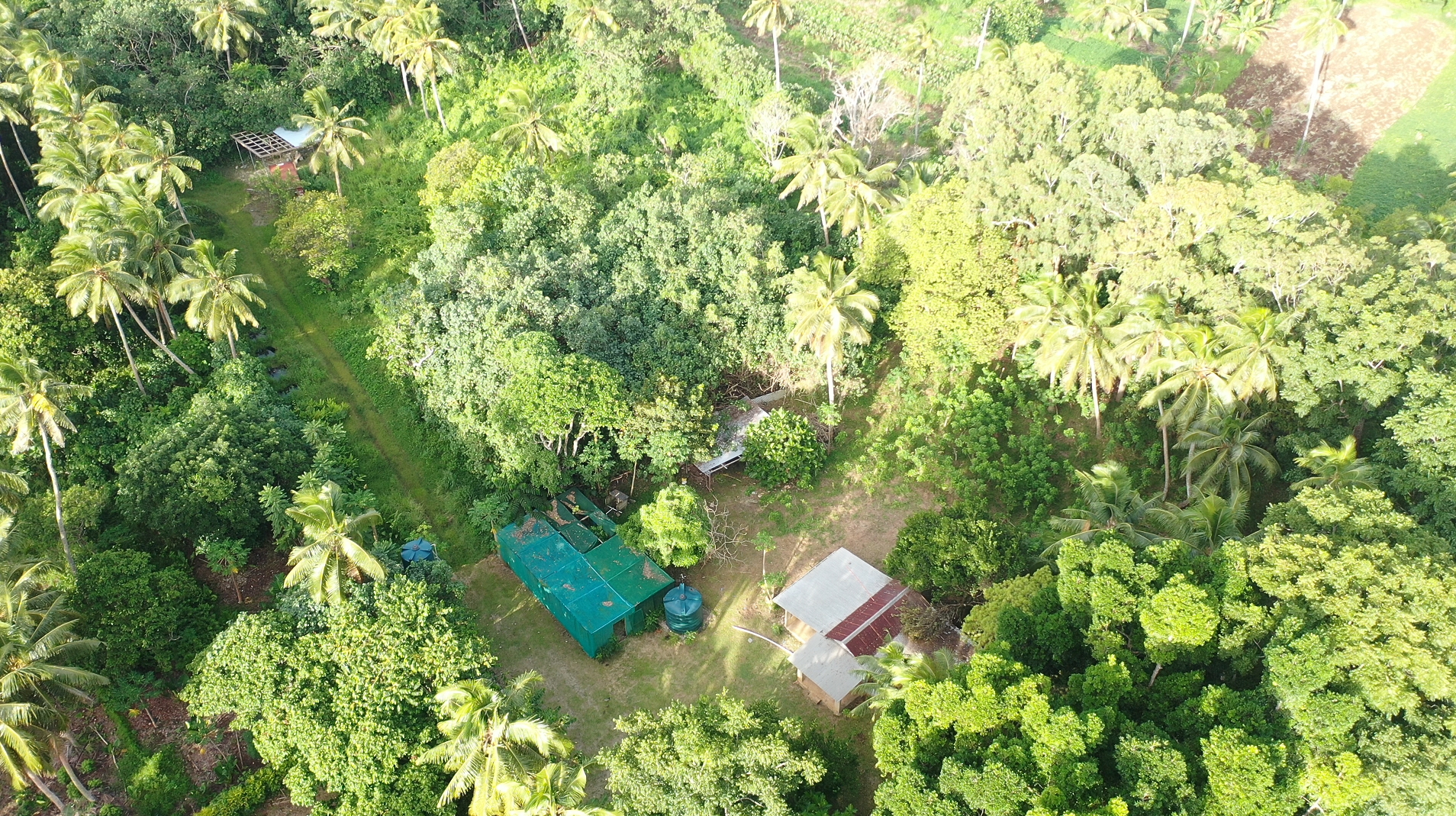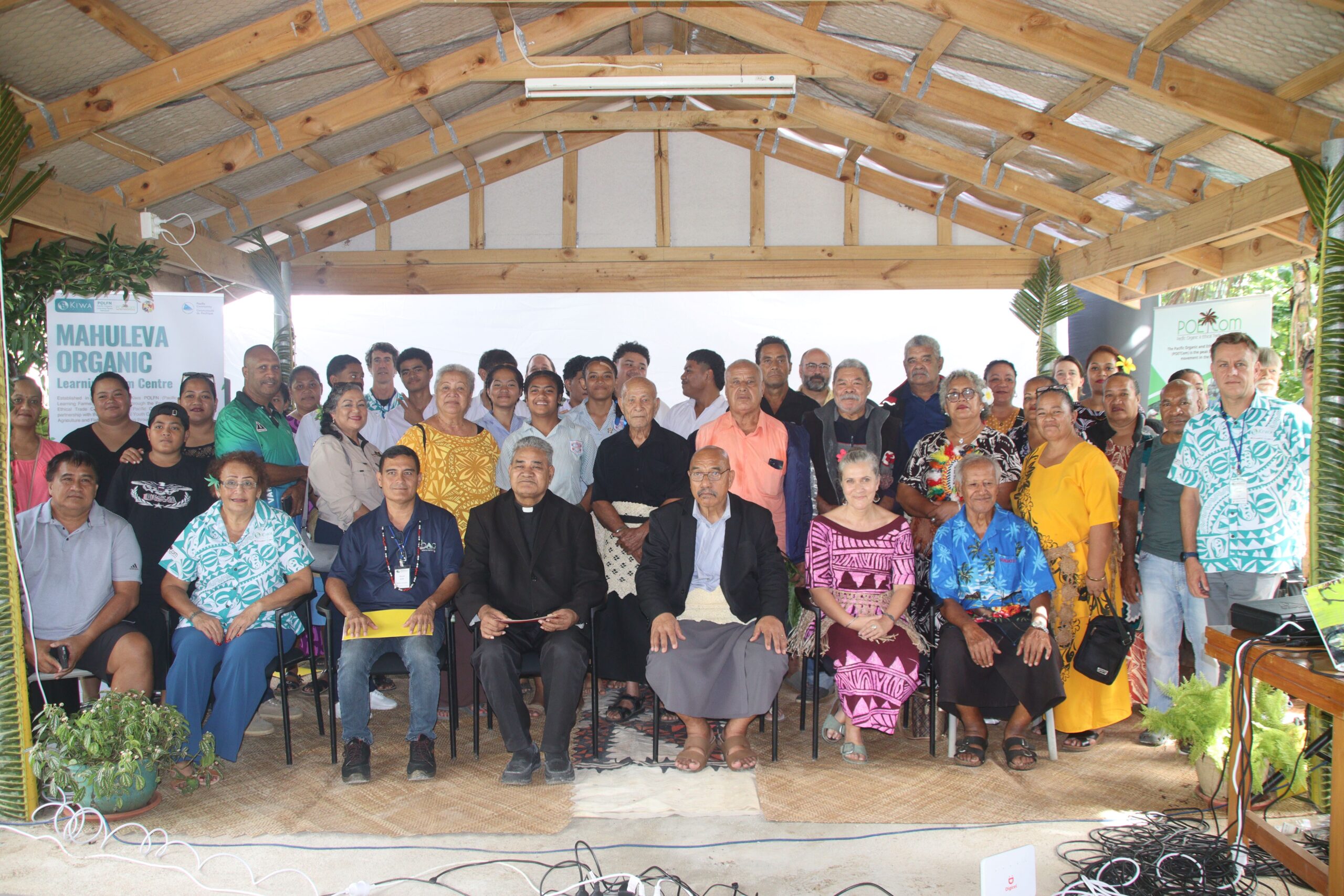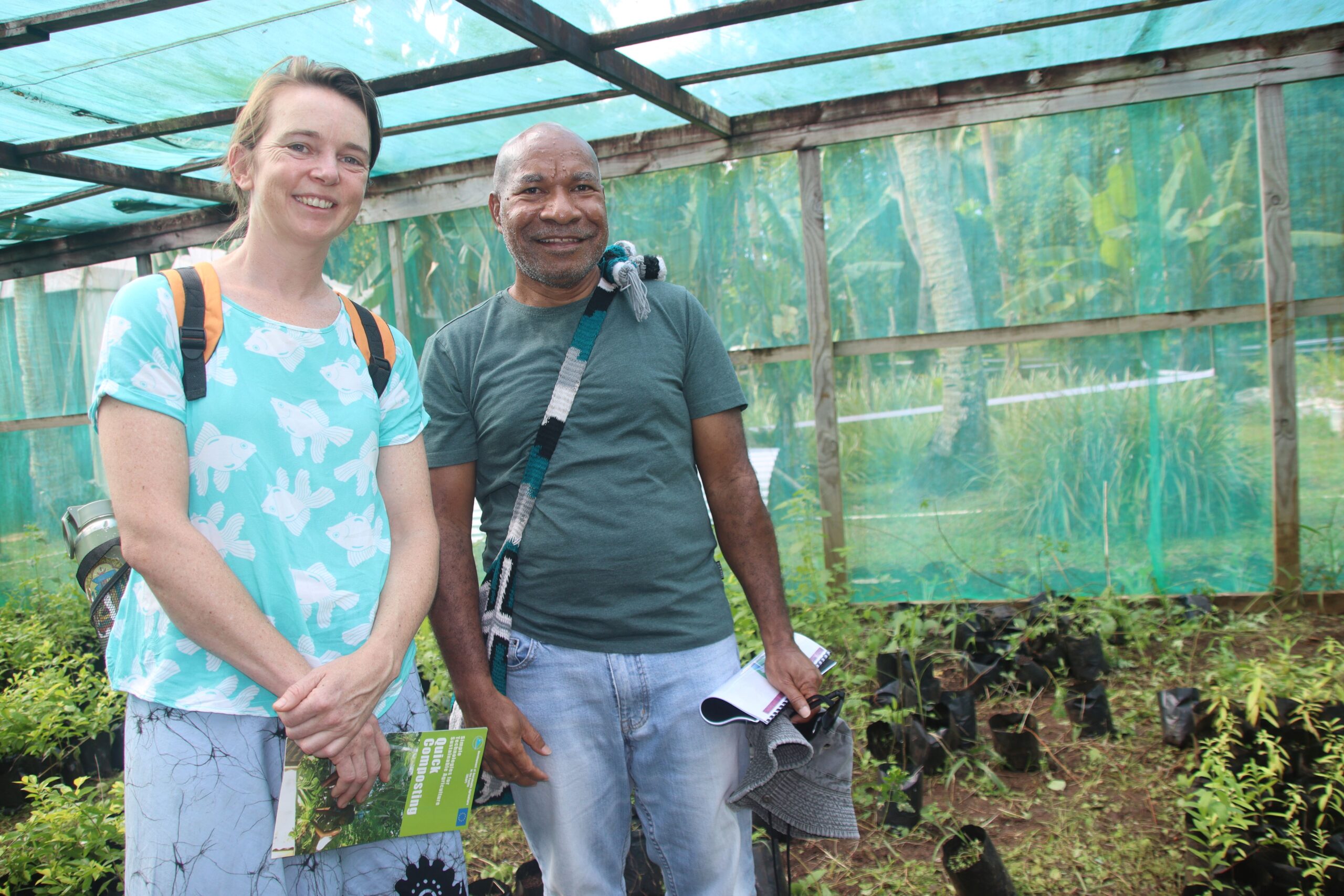What Mahuleva’s Organic Farm Teaches us About the Future of Pacific Farming
At first glance, the farm tour at Mahuleva Organic Learning Farm might have looked like a pleasant break from the meeting rooms of the 2025 Pacific Week of Agriculture and Forestry (PWAF), but for those who attended the PWAF side-event, it was much more, a realistic experience of how organic and agroecological farming in Tonga can serve as a practical, scalable model for the Pacific.
In Puke village, just outside Nukuʻalofa in Tonga, sits the vibrant Mahuleva Organic Learning Farm Centre, a humble piece of farm land with a big message for the future of Pacific agriculture.

During the 2025 PWAF, this farm hosted more than 100 delegates from both local and across the region for a hands-on tour and roundtable discussion. It offered something different from the usual conference setting: a literal walk-through agroecology, healthy Tongan soil, the taste of a locally grown, nutrient-rich salad, and real conversations with farmers and producers. What Mahuleva showcased is what many of our countries are striving for: a regenerative farming system that is rooted in local knowledge and future-ready.
When we invest in smallholder farmers, we’re not just improving yields we’re strengthening entire communities. Every compost pile, every training, every PGS certificate has a ripple effect that feeds families, builds local economies, and regenerates the land. That’s the power of organic agriculture rooted in Pacific values.
– Fuatino Fatiaki, Organic and Agroecology Production Systems Officer.
Organic farming and agroecology share a common vision of sustainable and environmentally friendly agriculture, but they focus on different layers of that vision. Organic farming centres on the practices farmers use on the land. This includes building healthy soil, using compost, managing pests naturally, and avoiding synthetic inputs. It is practical, hands-on, and focused on what happens directly in the field.
Agroecology takes a broader, more holistic view. It looks at the entire farming system, including the environment, community, economy, and culture. Agroecology considers how farming interacts with nature and society, aiming to create systems that are not only productive but also resilient and just. In simple terms, organic farming provides the methods, while agroecology provides the context. Organic focuses on how we grow. Agroecology asks why, where, and for whom.

Together, they offer a powerful approach to farming that is rooted in local knowledge, supports biodiversity, and strengthens food and community resilience across the Pacific.
This Agroecology Farm Tour was co-organised by SPC’s Pacific Organic and Ethical Trade Community (POETCom) through the Pacific Organic Learning Farms Network (POLFN) Project, the Tonga National Youth Congress (TNYC) and the Government of French Polynesia. The POLFN Project is supported through the Kiwa Initiative and has five organic learning farm centres in the region, including the Mahuleva farm.
At the core of Mahuleva’s approach are four agroecological principles. These encompass best practices and strategic tools that agriculture ministries in the region can use to build resilient farming systems with local and traditional knowledge.
Soil and Water Conservation – At Mahuleva, healthy soil is central to farm productivity. Farmers use compost, crop rotation, and cover crops to build fertility naturally, which cuts input costs, protects freshwater, and restores degraded land. It’s a simple, scalable model for small islands facing declining soil quality.
Biodiversity and Integrated Pest Management – The farm grows a mix of leafy greens, root crops, legumes, and herbs beneath a canopy of native and traditional trees. This intentional diversity reduces pests, buffers against climate shocks, and supports food security by ensuring year-round harvests and market opportunities for smallholder farmers.
Holistic Ecosystem Management – Organic practices at Mahuleva are deeply rooted in local knowledge, including planting according to the Tongan 13-month lunar calendar. The farm conserves beneficial insects, uses natural mulching, and recycles all agricultural waste through composting. Seedlings are nurtured in on-site nurseries using saved seeds, while pesticidal plants like marigold and lemongrass help manage pests without chemicals.
Climate Change Mitigation – Mahuleva’s low-input approach lowers emissions and builds resilience to drought, cyclones, and saltwater intrusion. Kauri trees planted around the farm act as natural windbreaks, softening the impact of strong winds and helping maintain stable growing conditions.
Agroecology is not a new concept in the Pacific, many of our traditional practices already reflect its principles. What we aim to do through initiatives like POLFN is to recognise, scale, and support these practices using a combination of local knowledge and evidence-based approaches.
– Karen Mapusua, Director, Land Resources Division of the Pacific Community – SPC

These four principles were on full display during the Agroecology Farm Tour. Now, with the tour behind us, smallholder farmers have much to look forward to. Mahuleva Farm Advisor, Navuso Tuaimeiapi, shared plans to install a new market shed, an exciting milestone that will showcase certified organic produce from the Mahuleva Centre under the Participatory Guarantee System (PGS). The PGS certification provides a reputable, affordable and community-driven method for organic certification, giving farmers access to local and regional markets and a practical alternative to third-party certification. This training is grounded in POETCom’s Pacific Organic Standard, which defines the regional farmers’ requirements to obtain organic certification.
Further to this, the POLFN project is scaling up its efforts across Tonga. Originally designed for 100 farmers in 2021, the initiative now supports 296 ‘First Circle Farmers’ (FCFs) across Tongatapu, Vava’u, and selected outer islands. Women and youth make up 32% of this pioneering group, who have been receiving hands-on agroecological training, expert soil and biodiversity assessments, and tailored farming tools to boost productivity and market access. The Mahuleva (Tongatapu) and Ovava (Vava’u) learning farm centres will also serve as collection centres for organic produce, supply centres for seedlings, organic seeds and compost.
Among the 100 plus participants at the Agroecology Farm Tour were students from Apifo’ou College in Nuku’alofa, who brought a welcomed perspective to the conversation of the future of Pacific agriculture. Providing much-needed intergenerational support means young people will have access and potential to not only succeed as farmers but also as producers and within agri-business. Initiatives like POLFN are a start; however, more is needed, long-term mentorship, land access, tools, and targeted training. The region’s agricultural future needs youth to take the lead, backed by intergenerational support.
POETCom recognises that across the Pacific, land is our identity, and farming is more than a 9-5 “job”, it is what communities and countries can grow and farm, forming generations of traditional genetic wealth and food heritage. Organic farming and Agroecology respects this deeply ingrained relationship by valuing the health of the soil, the balance of the ecosystem, and the knowledge passed down through generations.
But perhaps the most important lesson from Mahuleva is this: transformation is possible when it’s collective. The farm’s ongoing success is the result of strong collaboration between SPC, POETCom, TNYC, and the Kiwa Initiative. It’s a timely reminder that when partners and stakeholders engage smallholder farmers with respect and long-term support, the results can be both resilient and regenerative.
But perhaps the most important lesson from Mahuleva is this: transformation is possible when it’s collective. The farm’s ongoing success is the result of strong collaboration between SPC, POETCom, TNYC, and the Kiwa Initiative. It’s a timely reminder that when partners and stakeholders engage smallholder farmers with respect and long-term support, the results can be both resilient and regenerative.
Organic farming isn’t just about what we grow, it’s about what we feed our families. Organic means no chemicals, no residuals, just real food from healthy soil. Our children deserve nothing less.
Drew Havea, Tonga In-Country Coordinator, POLFN Project, SPC